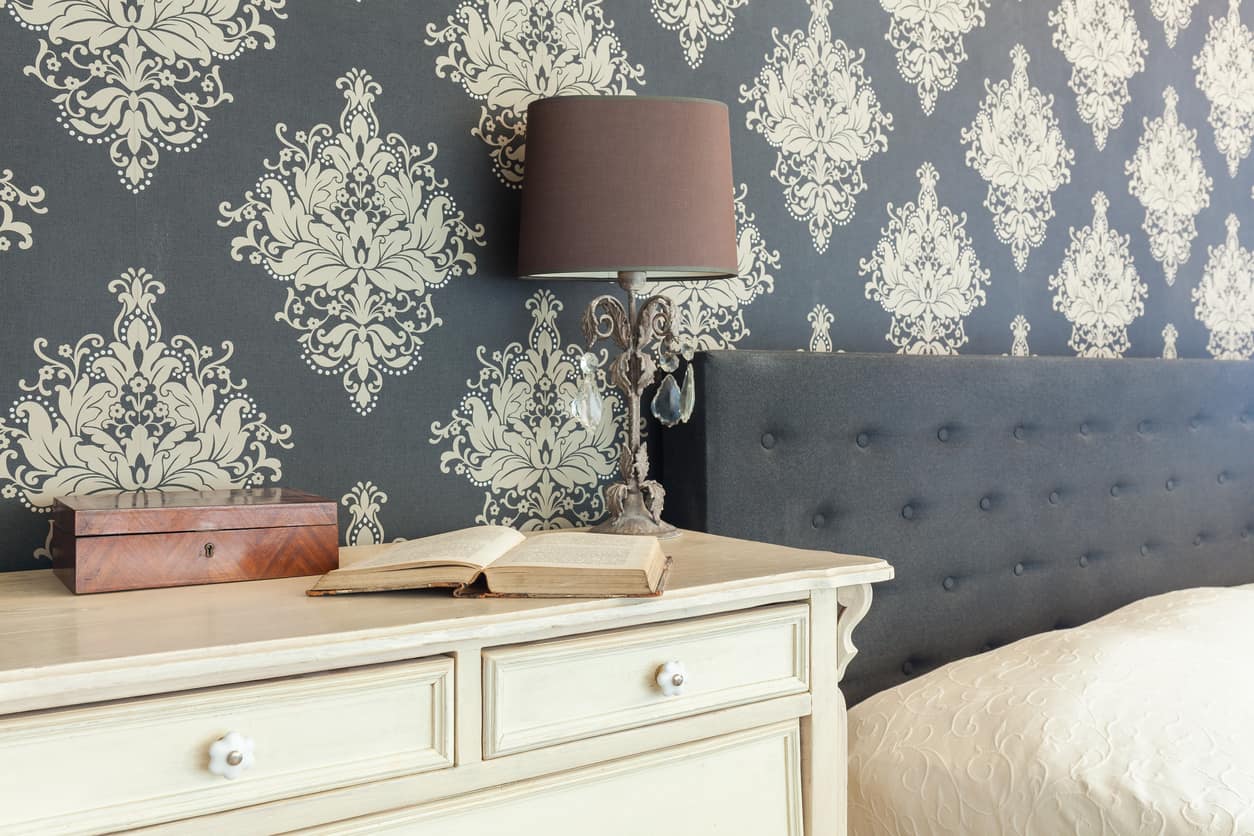This post was approved by Community Alliance Against Family Abuse and A Safe Place.
Remember: Computer activity can be tracked. Learn more about Internet safety here.
At Redfin, we are overjoyed when someone finds the home of their dreams. We thrive on it! However, we also understand that sometimes the joy of a new home can arise from unfortunate circumstances. With 1 in 3 women and 1 in 4 men as victims of [some form of] domestic violence by an intimate partner within their lifetime, we realize the significance of beginning a new chapter in a new home. While facing this reality, Redfin agents are here to help victims of abuse find a new home that brings them comfort, security, and happiness.

When you’ve left an abusive relationship, it may take time to feel safe and secure in a new home. You want to be able to feel comfortable in your new space, but it is fairly common for domestic violence survivors to feel uneasy or cautious about settling in a new home with new routines. This uneasiness is perfectly natural; be patient with yourself.
There are many ways to process trauma, and moving into a new home can both help you move on and bring deep-seated pain to the surface. Processing trauma takes time and, like any other emotional roller coaster will have highs, lows, fast speeds and sluggish slowness. Be easy on yourself and consider a few important insights about how a new home will factor into your recovery.
First Steps to Ensure Safety
- Your first step should be to call an advocate to create a safety plan.
Every abusive relationship is different. With research and the help of several domestic violence recovery organizations, we’ve come up with a list of suggestions to help you stay safe. We encourage you to apply these practices as you see fit for your life while seeking counsel on what is best for you.
Start by creating a safe space that if possible, is far removed from your former partner.
- Block the abuser’s phone number.
- Get a new phone number.
- Only tell people you trust where you are living, and consider having your bills and mail sent to a Post Office box.
- If you shared any credit cards or financial accounts with your abuser, cancel or freeze them right away. If you need to, get new ones that they don’t have access to. If your abuser controlled your finances, you are not out of luck. Learning to rebuild your finances is part of the recovery process and can be achieved. Obtain a copy of your credit report and monitor your credit regularly.
- Most financial institutions provide credit monitoring services such as Privacy Guard at a low cost. You can get a copy of your credit report by contacting one of the three credit bureaus: Equifax, Experian , TransUnion , or from FREE Annual Credit Report.
- Deleting your social media accounts and monitoring your technology use can also help you protect your privacy while you rebuild a safer life.
- Become part of an Address Confidentialty Program which gives victims a legal substitute address to use in place of their physical address.

When moving to a new home, you can also help secure peace of mind with safety planning that includes:
- Remembering that sometimes addresses can be found on police reports, legal documents and restraining orders. Talk to your lawyer to find out your options for anonymity. If you can’t afford a lawyer, look for organizations that provide pro bono services.
- Talking to the administrators or teachers at your children’s schools about this sensitive situation or changing their schools entirely, especially if they’re going to be attending public schools that might be tied to neighborhoods or districts. Changing your child’s school may require approval from both you and your current or former partner or spouse so it’s best if you consult a lawyer before taking action.
- Installing an alarm system and/or reinforcing doors and windows. Adding additional locks can help with a sense of security, and so can installing motion sensors and motion lighting. It’s important to exercise reasonable caution.
- Telling a trusted neighbor or coworker about the situation, and maybe even giving them a picture of your abuser so they can alert you if they come around. Be certain this is someone you can trust. Avoid seeking out a friend who still speaks to your ex or seems to doubt your experience. Make sure the person you confide in is completely on your side.
- Avoiding secluded areas where you may feel isolated or it may take police a considerable amount of time to respond to a call. Being around people might make you nervous at first, but it can ease your mind to know that help is right around the corner.
Create a special, comforting space to feel at-ease
When you close your eyes and imagine yourself at peace, what do you see? A quiet, cozy reading nook? A place for restorative yoga or a creative, artistic space? Carve out a room or a corner in your new home just for activities that can help calm your nerves when you feel anxious or get you out of your head when you find yourself reliving some of your scariest moments.
When you’re scared or anxious, it can be helpful to surround yourself with positivity. Hang positive quotes and write out peaceful mantras. Creating a sanctuary space can motivate and inspire you to concentrate on where you’re going, not where you’ve been. Listen to music in a comfy chair or write yourself inspiring notes to build a peaceful home and an emotionally-secure sense of self.

Speaking of emotions, when you move into your new home, you’ll be feeling about a million different ones — probably all in a single moment. The most important thing to remember is this: you deserve happiness. Start focusing on creating new, positive memories. If you enjoy cooking, choose a house with a bright, open kitchen. New appliances and cheerful decor can help you feel safe and sound in a room where you can be free to be yourself and do what you love. Recover your independence.
Movie-lovers can select a house with a big, carpeted living room that can be set up like a theatre. You can take a refinished basement and turn it into a lively game room or other activities that can be enjoyed by children.
You can also make your home more relaxing by:
- Keeping fresh flowers or houseplants in rooms you visit most often.
- Painting the walls soothing tones and hanging artwork that evokes feelings of calm and peacefulness.
- Planting and caring for a garden, as well as creating a comfortable, serene outdoor space. Consider a privacy fence so you feel more secure.
- Adding elements of softness — rugs, blankets, pillows and other cloth items that let you sink into them when you need comfort.
- Use natural light when you can, as studies show that natural light improves mood. However, be mindful that big open windows might make you feel vulnerable. Try to find a balance. A home with skylights on the roof is a great compromise.

Buying a new home
Maybe you’re not ready right away to commit to a new home. It’s OK; give yourself space. It’s important to take all the time you need when reclaiming your emotions and rebuilding your life. There’s no rush to buying a new home, but when you begin to feel stable and secure, you may want to start looking.

Remember these home buying tips:
- Where you want to live? Will you be in the same city as your former partner? Do you share children? Do you want to be near friends and family? Sometimes, you may feel a strong urge to reinvent your life entirely — move to a new city, take on new work and maybe even make new friends. There’s nothing wrong with that, but before you purchase a house or a condo, talk to someone you can trust and get their opinion.
- If your finances were tied to your abuser, you may need time to rebuild credit or reestablish your financial independence. Talk to a financial advisor or credit counselor if you are unsure how your credit was impacted by ending the relationship.
- Selling your old home might need to come before buying another residence. If you and your former partner owned property together, you may have to negotiate a buyout, or need to wait until a divorce settlement or legal proceedings have wrapped up. Legalities can become complex but many lawyers offer services pro bono for survivors.
- Sometimes, survivors have to leave everything behind. As painful as that may be, possessions are less important than your safety. Speak with a lawyer or law enforcement professional to understand the options for retrieving any possessions before purchasing a new home.
You have taken the bold, brave step of leaving behind a terrible situation that you didn’t deserve, and finding a new home is an important step on the journey of recovery. You can reclaim your life after abuse. You can start by creating a new home, one filled with the respect, comfort, and love you deserve.
More Resources:
- Call the National Domestic Violence Hotline at 1-800-799-7233 or TTY 1-800-787-3224
- National Resource Center on Domestic Violence
- Domestic Shelters
- Getting Out of An Abusive Relationship
- Techsafety.org
- Recovering from Financial Abuse
- Pro Bono services for Domestic Violence victims
Remember: Computer activity can be tracked. Learn more about Internet safety here.

 United States
United States Canada
Canada